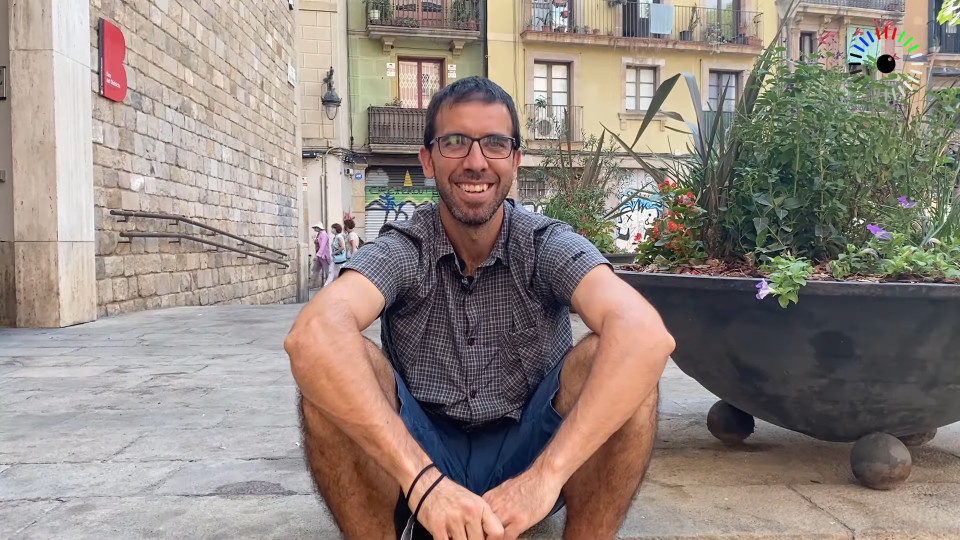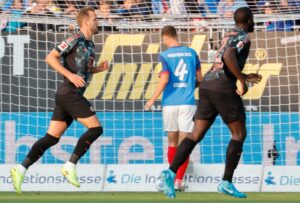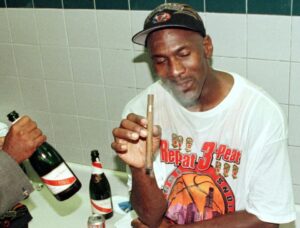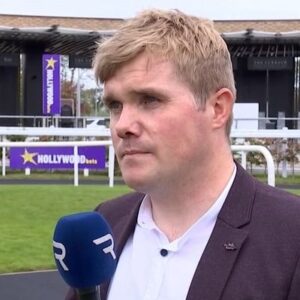Oleguer Presas had a football career that was the envy of many.
He won a Champions League with Barcelona and was even in the starting XI when Lionel Messi made his debut with the club.
Oleguer is happier away from professional footballYouTube – Diari de Barcelona
Oleguer played alongside greats of the game like Ronaldinho, Xavi, Puyol, and Deco during his time with BarcelonaGetty
However, football hasn’t defined the 44-year-old’s life after retiring. He is trying to make a bigger impact on society.
“I don’t see myself on the political front line, but I am involved in politics,” he said.
A fine defender who joined Barcelona B from Gramenet in 2001, he quickly graduated to their senior side.
There, Oleguer was a regular at centre-back with the capability of right-back, where he played the night the Catalan giants beat Arsenal in the Champions League in 2006.
Alongside, Rafael Marquez, Carles Puyol, and Giovanni van Bronckhorst, he did his utmost to stop Freddie Ljungberg, who was in fine fettle, and Thierry Henry.
A booking, though, saw him substituted with Juliano Belletti replacing him – the rest is history with Samuel Eto’o cancelling out a Sol Campbell opener and the Brazilian replacement netting the winner.
Oleguer was also a starter in Messi’s debut for Barcelona, a 1-0 win over Espanyol in October 2004, playing alongside him a total of 61 times.
Football is no longer the central pillar of Oleguer’s life but he does retain pride in his contribution.
He told Diari de Barcelona: “I am proud to have arrived at Barca, for me this is success. Then you win a Champions League or you don’t, or a League… It depends on many factors. What is the result of effort and dedication is this entire trajectory. I’m proud of that, yes.”
Politics was always on the mind of Oleguer, though, who also won two LaLiga titles.
Not only did Oleguer have to deal with Henry in the Champions LeagueGetty
As his teammates played for the Spanish national team, he opted not to as a proud Catalan in the mid 2000s, just before the nation conquered the footballing world.
“I did not feel this commitment to a national team that does not represent me in any way. On the contrary, it generates rejection and aversion in me for what it represents,” he said.
“The conversation with [Spain manager at the time] Luis Aragones was very frank, honest and calm.
But Ljungberg too, which was no mean featGetty
“It’s not that I can’t feel comfortable, it’s also that I’m not interested. I haven’t seen or followed the European Championships or the World Cups, it doesn’t have much sense.”
His views, though, polarised opinion at the time.
“When you’re in the thick of it, some picked me up as an icon because of what I said and some hated me. I was always quite aware of that,” he added.
Oleguer played for Catalonia over Spain such was his commitment to his beliefsGetty
In a separate interview with Marca, he added: “Being at the centre of it all, some people chose me as an icon for what I said and others hated me. I was always quite aware of that.”
Oleguer is perhaps a more relaxed figure now than in a rebellious youth, which saw him co-author a book about his life so far and commitment to Catalonian nationalism and anti-fascism after winning the league title in 2004/05.
Promoting it, he said: “I know that everything I say can have a lot of repercussion, but in what sense? Controversy, newspaper articles, radio comments, conversations… and will something change?
Oleguer was faced with tough questions on and off the pitch as he dealt with Zinedine Zidane and the backlash from his political viewsGetty
“Even knowing that it will not change immediately, you have to get wet, because indifference is equivalent to giving up. And we have to dream, whatever the cost, because it is the only way to get closer, even if it is with the slow passage of time, to the utopia. We have to be optimistic. Ithaca is not that far away”.
Meanwhile, he also attended protests in Barcelona and in Amsterdam, where he played for Ajax for three seasons, and courted controversy for other political statements.
Now, though, he is rallying against the commercialisation of football and its sometimes ‘toxic’ nature.
He told VilaWeb: “For years, football has been a business, a spectacle, focused on making economic profits. Fans are no longer fans, they are spectators. Members are no longer members, they are consumers of the club. Everything revolves around money.”
Oleguer even battled Ronaldo during his time with BarcelonaGetty
When celebrating trophy wins, Oleguer draped himself in the flag of CataloniaAFP
Oleguer helps out at a football project which seeks to take the competitive nature out of the beautiful game, even talking about his new life at a Tedx event in Tarragona.
Speaking about a return to the sport after running as a political candidate in elections, he said: “I thought training football was the way to go, but I didn’t like the things I saw in traditional training football.
“In this sense, the project was an opportunity to, from a passionate point of view, hold training sessions where learning was not solely football-related in order to seek the sporting excellence that is usually sought, but with vital learning and where the football aspect was not central.”
He added in another interview: “I realised that grassroots football is very focused on performance and from my point of view there are human situations that I don’t like and that make me feel uncomfortable.”
YouTube – TedxOleguer spoke at a Tedx event in Tarragona[/caption]
Oleguer also spent time at Ajax before he retired quietly at just 31Getty
As such, the project sees mixed teams of young children, of all abilities, playing on the site of a former Civil Guard barracks in Sabadell.
Here they get to enjoy the game without playing competitive fixtures.
“It has been good for us not having competition for this moment of joint learning that aims to change the most competitive and individualistic dynamics,” he told Marca.
“If we had started in a competition without doing any previous work, it would have been more difficult to explain to them that the result is not important and that we all have to play together.”
He added: “We live in an unjust society, and I try to do what I do to put an end to inequalities.”
Presas’ legacy at Barcelona lives on though, with Gerard Martin recently compared to him by Mundo Deportivo.
The two enjoyed very similar pathways into the Barcelona first team.



